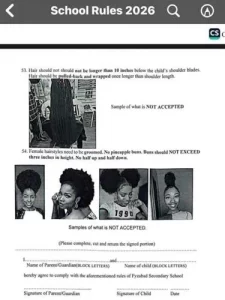
WHATSAPP rolled out an update around September last year, giving group administrators more power to control the content being shared in their group chats.
Previously, admins could only delete their own messages. Now, they have the power to delete messages sent by anyone in the group.
To do so, all a group admin needs to do is long press the message. An options bubble will appear, one of which is to “Delete for everyone”. Tapping that option deletes the message for the entire group.
The deleted message will be replaced by a WhatsApp message that says: “This message was deleted by admin [name]”. From that message, the WhatsApp group will be able to see which group admin took the action to delete the message.
Note, however, WhatsApp placed a restriction on this new power to delete. It must be exercised within about two days of the message being posted to the group chat.
Nevertheless, group admins now have a greater ability to manage their groups and communities by deleting inappropriate, defamatory, abusive, and illegal messages, or media, for all members of the group chat. For ease of reference, I shall simply refer to these types of messages as “hate messages”.
On the flip side, this enhanced power to delete can translate into more legal responsibility to group admins to police the content of their group chats. It likely requires more time to be devoted to carefully reading the chats to ensure the inappropriate posts are deleted within the restrictive two-day time limit.
As far as I am aware, this country has no specific legislation dealing with or criminalising hate messages. For example, our Cybercrime bill of 2017 lapsed many years ago. However, the police have established a Cyber Crime Unit and appear to have taken notice of the hate messages often seen on social media.
Acting Deputy Commissioner of Police DCP Jayson Forde, is reported to have indicated during a TTPS press briefing held as far back as August 14, 2020, that hate messages may fall foul of legislation such as the Sedition Act, the Offences Against the Person Act (as they relate to harassment) and the Summary Offences Act (threats that can lead to an assault) and that the Police would be reviewing messages to see if charges could be laid.
Indeed, one infamous case in 2017, a Facebook user Rayad Mohammed, was reportedly charged under section 106 of the Summary Offences Act for allegedly sending a message by phone which is grossly offensive. The message was allegedly his response to a gruesome double murder of a babysitter and a 13-year-old boy in June 2017, where Mohammed posted a message directed at the daughter and wife of Prime Minister Dr Keith Rowley.
From another perspective, judges do have the power to make law (in limited circumstances), not just interpret them.
A warning has been sounded, for example, by High Court Judge Justice Frank Seepersad, in the recent case of CV2020-00493: MS v. CH (available online). Delivering judgment on August 16, 2022, in a novel case involving alleged defamation via a WhatsApp group chat, he cautioned users of WhatsApp to delete messages which “… contains information about another individual which is possibly untrue and which if passed on can lower the reputation of that person in the eyes of another. The simple guide must be that you don’t forward a message about another person unless you are prepared to defend the content of that message.”
Justice Seepersad went on to say: “If you control a blog or article and you post defamatory statements or defamatory comments have been posted in response, the person who controls the blog, as well as the offending commentator, may be liable. Bloggers need to be circumspect and they should edit their posts and delete offending comments.”
While the law in this area is not settled, as it is rapidly developing and changing, the point being made here is that the potential exists for WhatsApp group admins to be held liable for e.g., defamatory messages, posted by other members in group chats, if they do not delete them within the very tight 2-day window WhatsApp has applied. Be safe T&T.
Copyright © 2023 Neela Ramsundar, LL.B (HONS), L.E.C Civil Litigation Attorney at Law & Certified Mediator.
Disclaimer: The contents of this article are for general informational purposes only and/or contain the opinions and/or thoughts of the writer only. It does not provide legal advice and does not create an attorney-client relationship with any reader. For legal advice on your specific situation, please contact an Attorney-at-Law of your choosing directly. Liability for any loss or damage of any kind whatsoever allegedly incurred as a consequence of relying on content in this article is thus hereby excluded to the fullest extent permitted by law.
![]()













